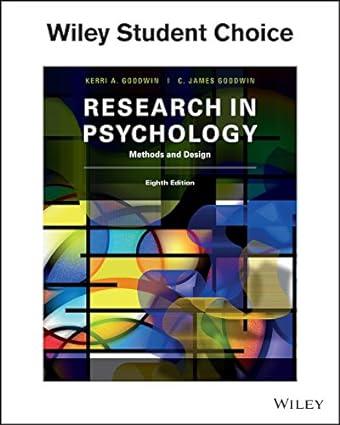Consider Milgrams obedience study, highlighted in Chapter 2 in the context of ethics. As you recall, subjects
Question:
Consider Milgram’s obedience study, highlighted in Chapter 2 in the context of ethics. As you recall, subjects playing the role of teachers thought they were in a study of the effect of punishment on learning. A learner, who was in on the deception and in the adjacent room, pretended to make numerous errors, and the teacher’s job was to shock the learner for each error and increase the voltage by 15 volts for each successive error. Milgram was interested in discovering the point, from 15 to 450 volts, at which the teacher/subject would stop the experiment, thereby showing disobedience.
Describe how you might conceptually replicate Milgram’s study to test these hypotheses:
1. Because of their greater compassion, women teachers would be more likely to disobey the male experimenter, especially if the learner was also a woman.
2. The more the experimenter is perceived as a genuine and legitimate authority, the greater the level of obedience.
3. Subjects delivered lots of shocks because they simply enjoyed doing it—after all, everyone is a bit sadistic.
4. Disobedience will be greater if the learner has a noticeable health problem (e.g., complains of cardiac symptoms).
Step by Step Answer:






